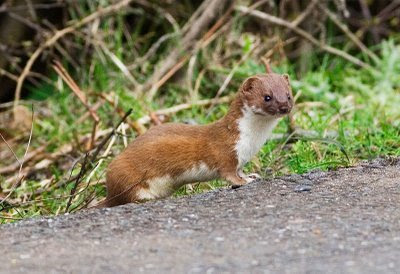The silly season is well and truly up and running already I’ve had to return a baby tawny owl and a leveret to whence they came from. When I was a boy growing up it was always the case, there was rarely a year went by that I didn’t have some unfortunate wild creature dependant on me, after someone had ‘thought’ it needed ‘rescuing’ and left them on my doorstep.
 |
| Leave me alone |
Rarely was there any real need for the said creature to be there, baby blackbirds with notes attached to them “found this under my bush thought you would no what to do with it”, or “the cat brought this in”.
 |
| George or was it Mildred |
I was of course the source of my own cross, having rescued and raised two fox cubs (George and Mildred) in the past and several corvids that would accompany me to school over the years. My long suffering parents must have dreaded the various containers and boxes dotted around the sheds as much as they dreaded entering the domain of Percy, the owl who lived in our dog kennels feeding on our never scarce, small mammal population. He always hated being disturbed during the day when he roosted and would swoop at any intruder before a cold winter got him and we found him frozen to his perch but he had led a relatively free existence despite him being so cantankerous thanks to the person who deposited him with us when he was chick when he should have been left alone, I don’t think he ever forgave us.
 |
| Poor Percy |
The moral of these anecdotes is still the same as it was yesterday leave wild animals alone whether you think they are in trouble or not, let Mother Nature take care of its own. All of the above could and should have been left alone and nature would have seen the best result for them all. This is a never ending concern that happens year after year despite the many posters and articles telling everyone to leave baby birds and other so called ‘orphans’ alone they still turn up on either mine or other establishment doorsteps needing ‘rescuing’.
I have been at pains to keep quiet some tawny owl chicks in my local park for fear of the inevitable and yet two weeks ago one was brought to my home. They lady looked horrified when I told her in no uncertain terms to take it straight back to where it had come from. But she said, “it needs rescuing”, I said, “from what”, she said “from the wild things”. I couldn’t help myself I burst into laughter and told her “he only thing it needed rescuing from was her”! I took it back and put it back up in its bush where it promptly climbed out, however the parents and siblings were all still in the area so I left it to its own devices and scared of heights.
 |
| Unlike Percy this one will fly free |
I noted last night when I was out with the dogs that all were nearly fully fledged now including the one with a fear of heights, which he appears to have overcome. As he peered down at me from his holly bush, he reminded me of Percy who although free and never restricted would never leave the kennels, this one would be able to fly free soon.
| The product of a 'do gooders' not letting nature take its course. Despite vetinary treatment this little otter died within days, the reason why it was abandoned in the first place possibly? |
There really should be little place for ‘animal rescuers’ and i generally have little time for them, save for dire emergencies, as in the vast majority of cases we just need to leave them alone and let nature take its course. The














